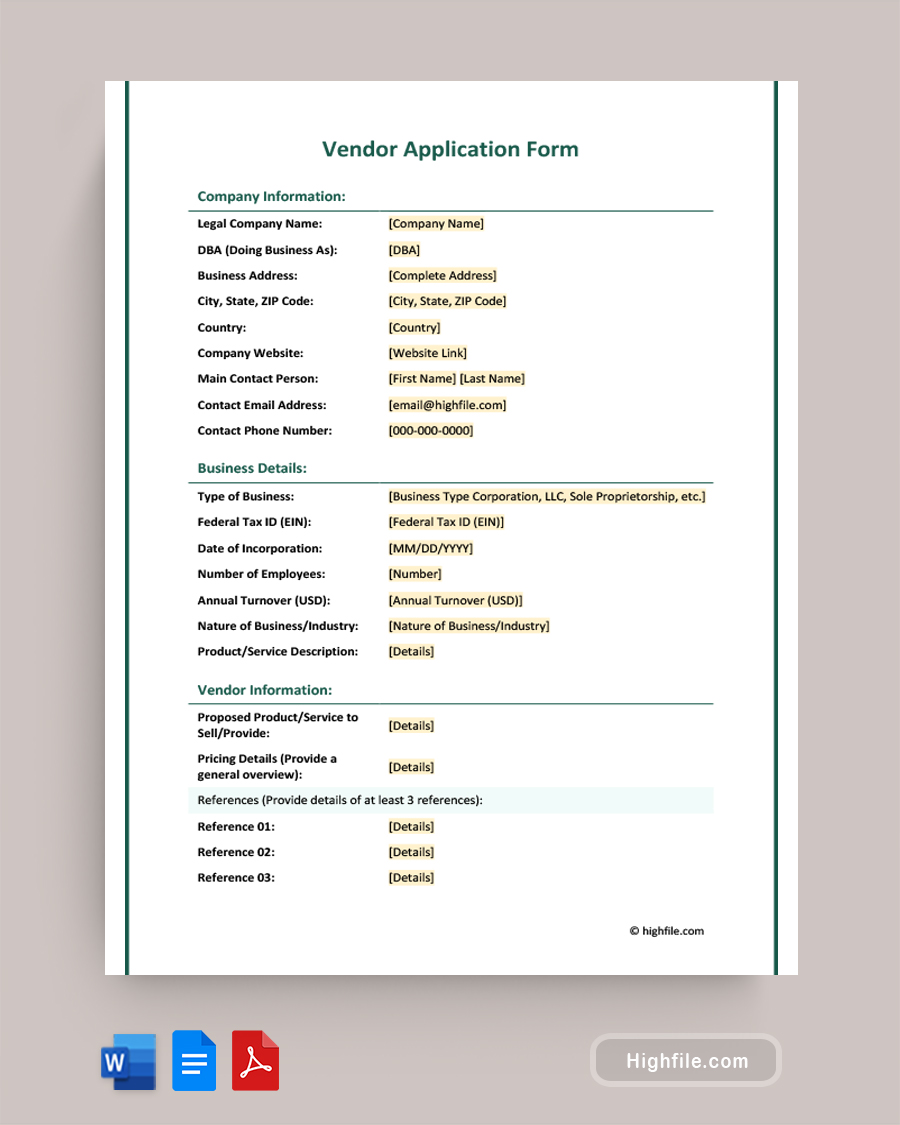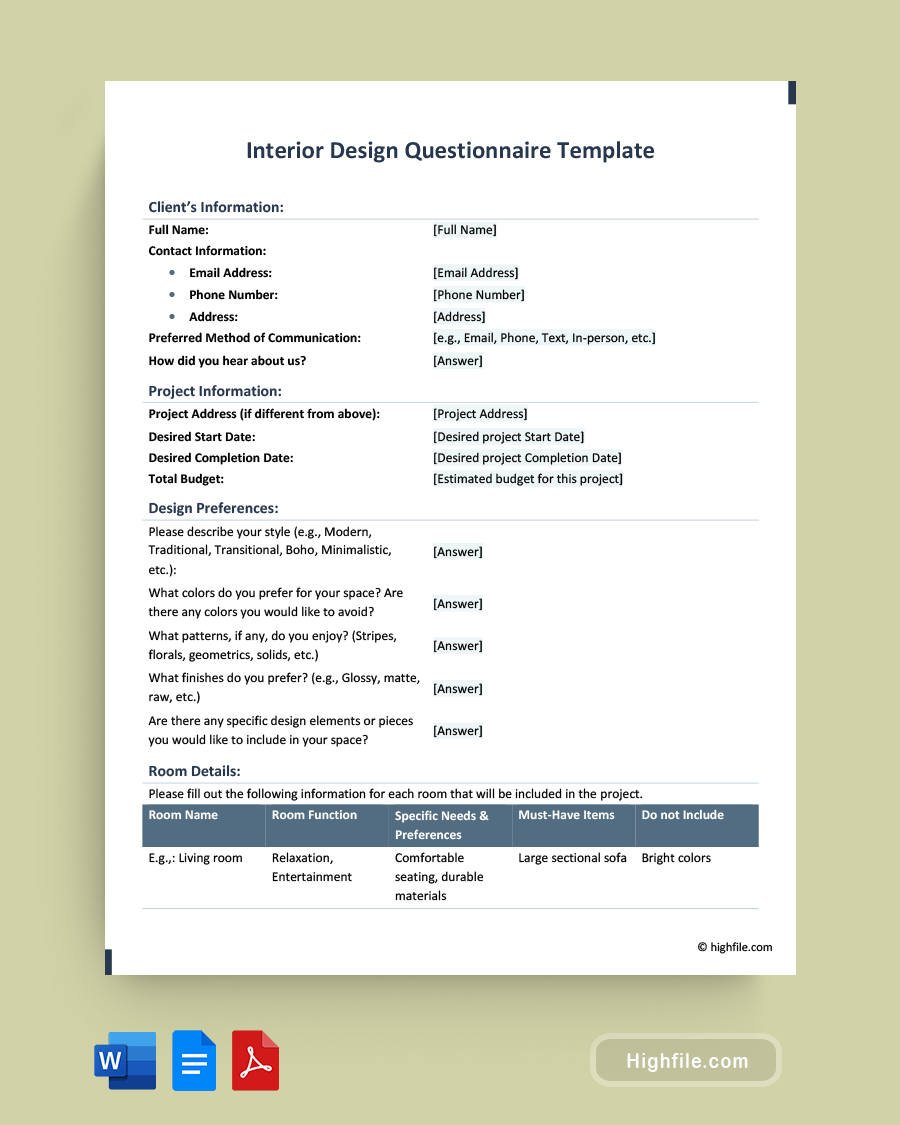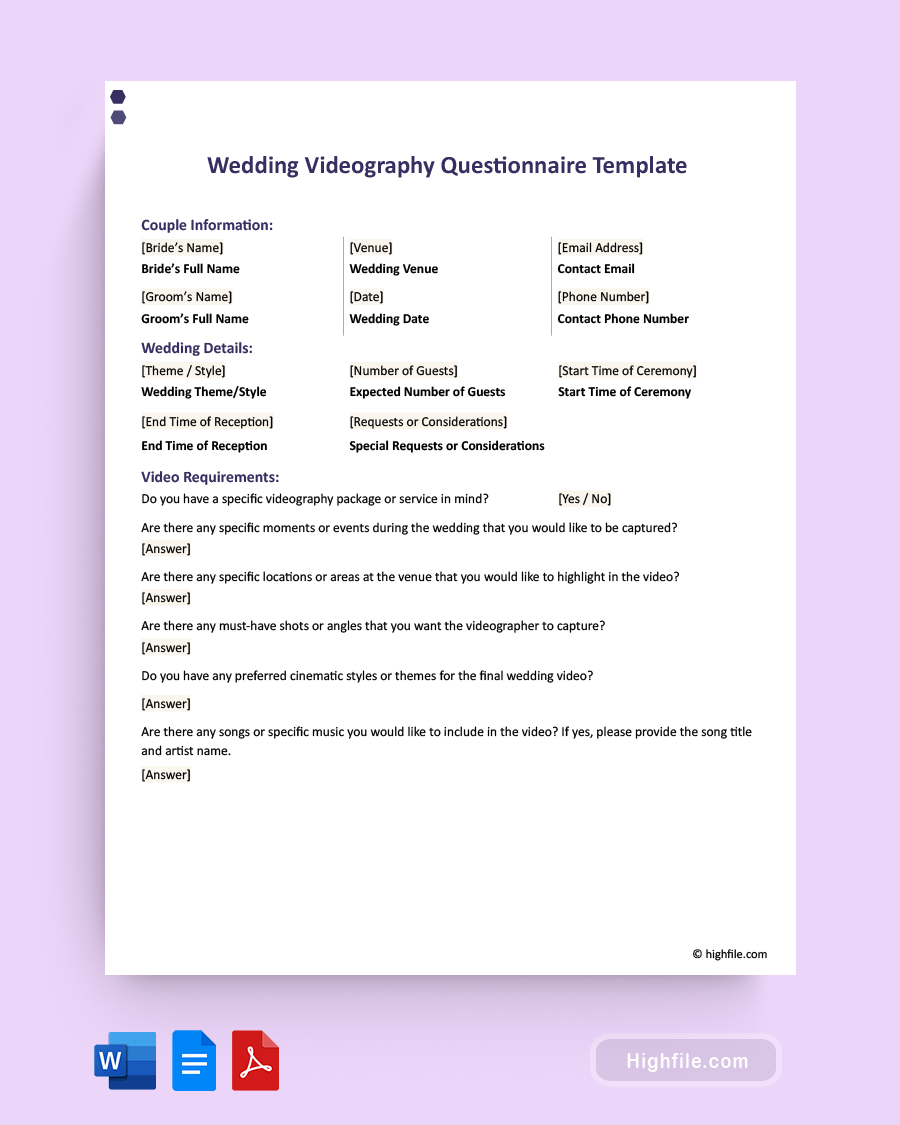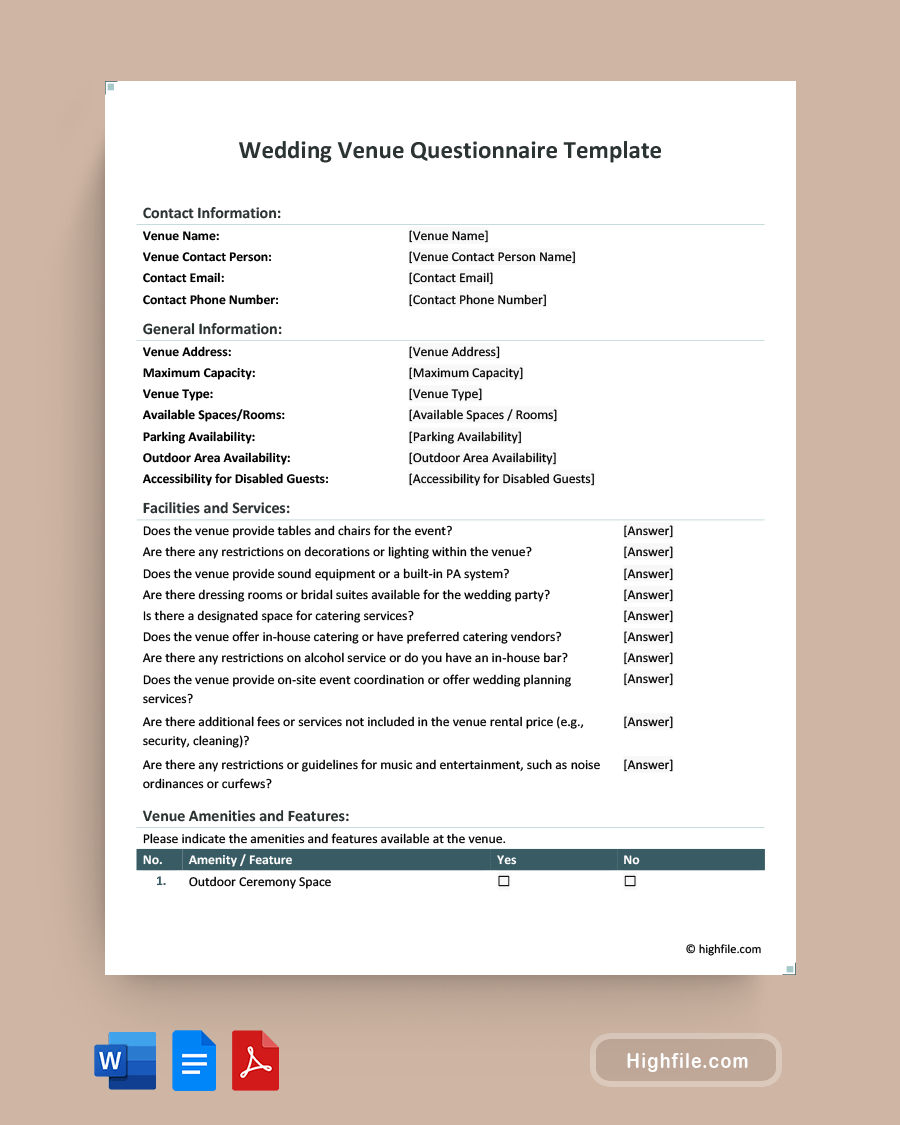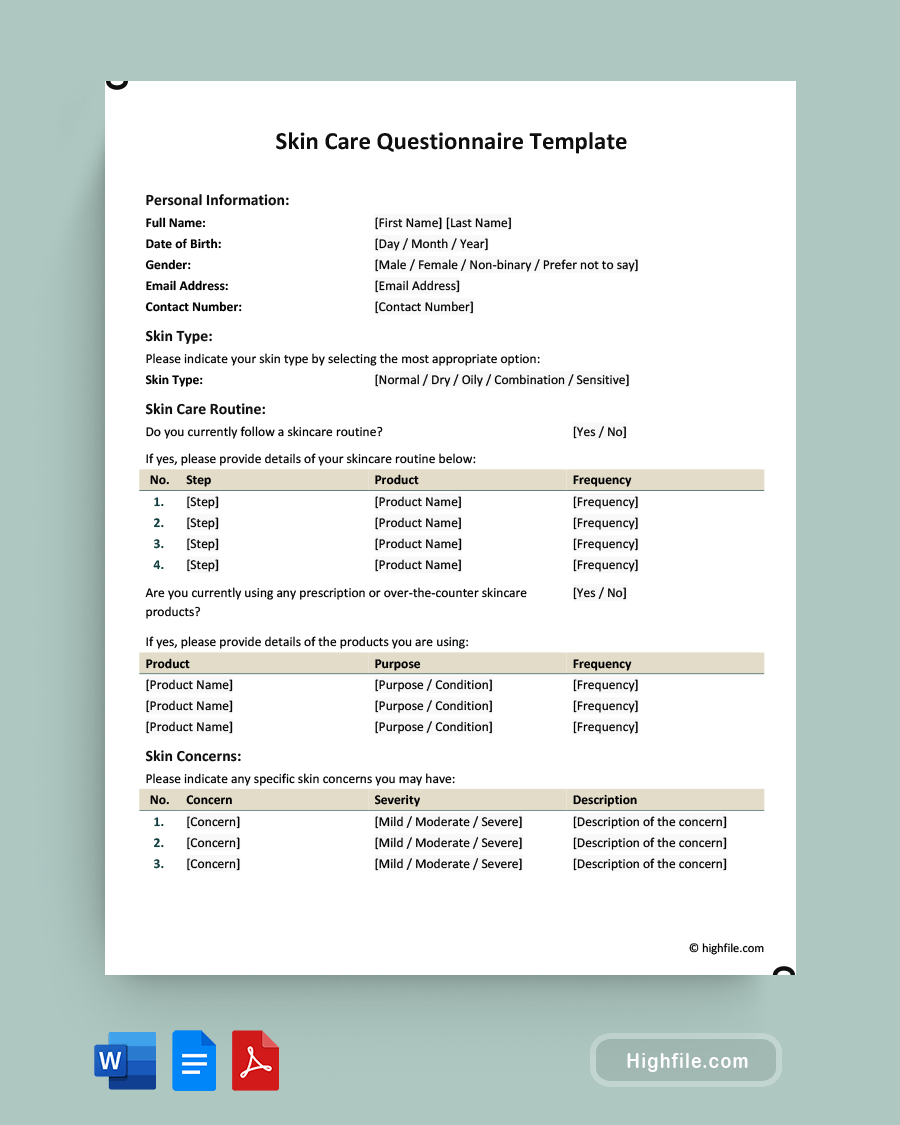Whether you organize events where others offer their goods and services or you are a vendor, you are going to see a lot of vendor application forms. Vendors offer unique benefits for an event by bringing a variety of unique goods and services that enhance the experience for attendees. However, none of that is possible without first getting a high-quality Vendor Application Form Template. A well-thought-out, professional application document will make deciding who to approve for vending spaces easier. Organizers who choose a wide range of reliable businesses and individuals whose products and services fit well with the event can raise their attendance and satisfaction rates, leading to a more successful outcome. In this article, we’ll teach you all about how to make and use Vendor Application Forms.
What is a Vendor Application Form?
A vendor application form is an essential document that organizations or businesses use to gather essential information from prospective vendors. This sheet is a formal application process to assess the suitability and qualifications of vendors before engaging in a business relationship. Regardless of the timeframe, virtually all vendors fill out these forms, from single-day events to regular slots multiple days a week. The form records details about the vendor’s company, products or services, compliance information, and other necessary documentation so the organizers can determine which businesses are a good fit for their event.
Why is a Vendor Application Form Necessary?
A vendor application form is necessary for vendors who want to work at events. From the business end, these documents are needed to determine who to work with. Similar to a job application, the organizers throwing an event want to select the most qualified applicants and those who fit the culture or mood of the event best. Here are all the reasons why it’s crucial to require vendor application forms:
- Standardized Application Process: Using a vendor application form establishes a standardized process for vendors to apply and request space.
- Vendor Screening and Evaluation: By requiring vendors to complete the application form, organizations can screen and evaluate potential vendors based on specific criteria designed to fit their event and management style. Asking about qualifications, experience, financial stability, or compliance requirements is all common.
- Risk Mitigation: Having applicants fill out a vendor application form helps organizations mitigate risks associated with engaging vendors. Collecting relevant compliance information, such as insurance coverage, licenses, permits, and certifications, is easy to help ensure the vendors you choose operate professionally and legally.
- Legal and Contractual Requirements: Vendor application forms assist in meeting legal and contractual obligations for organizers. By requiring vendors to provide accurate and complete information for compliance, legal documentation, and contractual agreements, the event runners show they have done their part to ensure everything is above board.
- Vendor Selection Process: The information provided in the application form helps shortlist and select vendors. A standardized format lets organizers make informed decisions based on the vendor’s capabilities and qualifications.
- Vendor Database Management: Vendor application forms create a centralized database of information. This is like an email list for a business because it offers a simple way to access vendor information for future reference, updates, invites, and ongoing vendor management.
Elements of a Vendor Application Form
The essential elements of a vendor application form are relatively straightforward. They collect information about vendors and their businesses. These vital forms typically include the following:
- Company Information: A section for the business name, Doing Business As (DBA) name if applicable, and other essential identification details for the business doing the vending
- Business Details: A section for the type of business (corporation, LLC, sole proprietorship, etc.), Federal Tax ID (EIN), date of incorporation, number of employees, annual turnover in USD, nature of business or industry, and brief description of the vendor’s products or services
- Vendor Information: A section for vendor-specific details, including primary contact information, mailing address, phone number, email address, and website, if applicable
- Compliance Information: A section that requires vendors to provide compliance-related information, such as proof of insurance coverage, licenses, permits, certifications, or any other relevant documentation as required by the organizers of the event
- Additional Information: A section that includes optional fields for vendors to provide supplementary details. This may include references, past clients, testimonials, or other information showcasing their capabilities or experience.
- Declarations: A section where vendors are required to review and sign declarations confirming the accuracy of the provided information. There may also be a statement agreeing to comply with the organization’s policies and acknowledging any legal or contractual obligations. The signature and date lines at the bottom make this a legal document when filled out.
- Submission Instructions: At the bottom, the form should include clear instructions on how to submit the completed application and any supporting documentation required.
FAQs
Vendor application forms are typically obtained from the organization’s procurement department, vendor management team, or through an official website. Most modern organizations provide downloadable forms or offer online application portals where vendors can complete and submit applications electronically. However, you can also ask in person if the event has a headquarters or if you are applying to vend at a more permanent location like a ballpark.
Whether or not a fee is associated with the vendor application form varies depending on the organization’s policies. Some organizations charge a nominal fee to cover administrative costs, while most offer these vital forms free of charge. It is best to inquire with the organization or review their vendor application guidelines when you want to know if any fees apply.
Although not every event has a complex process, most organizations typically initiate a review and evaluation process after submitting your vendor application form. Here are some common behind-the-scenes actions that take place between when you turn your document in and the event:
Application Review: The organization reviews the submitted application form. Someone checks that required fields are completed and any necessary documentation is provided.
Reference Checks: The organization contacts your references or past clients to gather additional feedback or verification.
Qualification Assessment: They assess the vendor’s qualifications, capabilities, experience, compliance, and alignment with their specific requirements by looking at the details included in the application.
General Approval Notification: When everyone within the organization has seen and approved a request to vend, the vendor will be notified of the approval and the next steps to take.
Negotiation and Contracting: Next, negotiations and contracting discussions help establish terms, conditions, pricing, and other contractual arrangements.
Vendor Onboarding: After reaching an agreement, the organization proceeds with the vendor onboarding process.
Processing a vendor application form depends on the event and the organizers. It may take as little as a week or several months. For more information, contact the event organizers of your particular event.
The type of documentation required and a vendor application form can include certificates of insurance, licenses, permits, financial statements, references, or other relevant documents specific to the event or industry. The exact documentation requirements should be outlined in the application instructions or guidelines.
Key Points
Vendor application forms are crucial for organizations to assess and engage with potential vendors. They streamline the vendor selection process, ensure compliance with legal and contractual requirements, and help establish a comprehensive vendor database. By providing accurate and complete information on the form and submitting the required documentation, vendors increase their chances of being considered for business opportunities. A thorough, well-crafted Vendor Application Form Template can aid in establishing successful, mutually beneficial partnerships between vendors and organizations.
